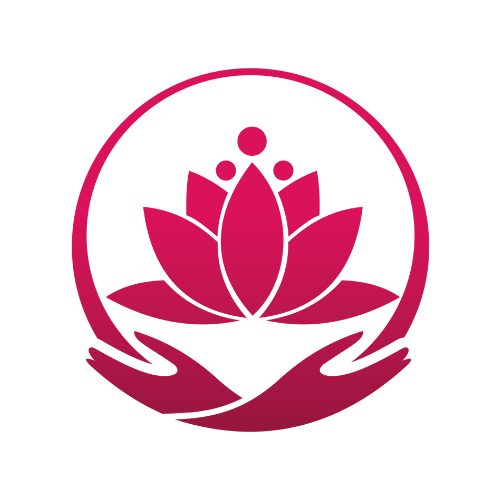All you want to know about Abhyanga. Benefits and contraindications.
Skin is the largest organ of the human body. It maintains body temperature, manufactures vitamin D, and protects inner organs from bacteria and harmful chemicals. On the other hand, the skin is the largest sense organ. Nerves and sensory receptors help us to feel touch, pressure, pain, etc. We can feel love and support, calmness and happiness just through the touch or hugs of other people. According to Ayurveda, absorption of medicated oils, herbal paste, etc is one of the major functions of the skin. Anointing the body with medicated oil and gentle massage will stimulate sensory receptors, give deep relaxation and provide absorption of the herbalized oil at the same time. We call it Abhyanga in Ayurveda. Ayurveda says, that Abhyanga should be done on a daily basis.
Benefits of Abhyanga:
gives flexibility, lubrication, nourishment to the body;
bestows good vision;
promotes good sleep;
wards off old age and supports longevity;
balances Vata Dosha;
increases stamina and strength;
calming the mind;
softens and tones the skin.
Giving Abhyanga is giving the love. Through the gentle and smooth touch with warm medicated oil, your skin sends a message to our brain that you've been loved and supported. In Ayurvedic Way we perform four or two hands Abhyanga. Traditionally Abhyanga was done by two practitioners (Four hands). This is an emaizing experience everyone should try at least once. The strokes are done in a completely synchronized way. It helps to relax the mind and body completely. Two hands Abhyanga is another way to enjoy Ayurvedic Massage for less money.
Giving self Abhyanga is giving love to yourself. From the embryo to the elderly human touch is vitally important. Dacher Keltner in Hands-On Research: The Science of Touch says: “In recent years, a wave of studies has documented some incredibly emotional and physical health benefits that come from touch. This research is suggesting that touch is truly fundamental to human communication, bonding and health”. Stimulation and touch relieve stress, decrease disease, and promote the immune system. Generally, we use medicated oils for Abhyanga depending on the health condition and individual constitution. Since the skin is the route of medication administration, the oil can be adjusted to get maximum benefits from Abhyanga.
For the self Abhyanga, you can use sesame oil, coconut oil, ghee, etc. Do not forget to warm it up before applying! Vata Prakriti (constitution) people can use sesame or almond oil for Abhyanga. Medicated Ayurvedic oils such as Pavan oil, Balashwagandha oil, Dhanwantharam Thailam, or Mahanarayana Thailam are very beneficial for them. Pitta Prakriti (constitution) people would enjoy neutral and cooling oils. Coconut oil, olive oil, and ghee provide softness and decrease irritation of the skin. Medicated Ayurvedic oils such as Tejas oil, Chandanadi oil have a cooling effect on Pitta individuals. Flower essential oils are very beneficial for them: jasmine, rose, sandal, gardenia. Kapha Prakriti (constitution) people need a massage to improve their circulation. Therefore warm and stimulating oils are good for them: mustard oil or jojoba oil with stimulation essential oils (cinnamon, eucalyptus, camphor, etc). The best medicated Ayurvedic oil for the Kapha person is Dharani oil. When applying oil use long strokes on the limbs in the direction of hair growth and circular strokes on the joints. Massage abdomen clockwise. Give yourself love, and calmness, use soft and slow motions. The best is to keep oil for a few minutes after application and then take a warm shower or bath. If you do not have time for a whole-body Abhyanga, do at least the head, ears, and feet. No need to do a massage on the whole head if you are in rush, just apply a few drops on the top of the head, you can keep it without washing it out. Excited and ready to start your daily Abhyanga? Not so fast. Abhyanga is a procedure, do not take it so much easy. In addition to all benefits, it has contraindications.
You should avoid Abhyanga in case of:
indigestion, feeling heavy in the stomach;
right after eating;
after purification therapies (emesis, purgation, etc);
fever;
no head Abhyanga in congestion, running nose, or headache;
Sluggishness, morning stiffness, lethargy;
oozing skin condition, open or infected lesions;
acute respiratory condition, common cold, flu, hepatitis, herpes, etc;
edema (swelling).
Abhyanga is an amazing Ayurvedic procedure. It is much more important nowadays than ever before. When we spend our days in a bunch of activities, always in rush, everything is fast, give your body and mind deep relaxation, love and support is essential. Stay healthy and mindful! Psychotherapists said: “We need 4 hugs a day for survival. We need 8 hugs a day for maintenance. We need 12 hugs a day for growth”.
OM SHANTI!

